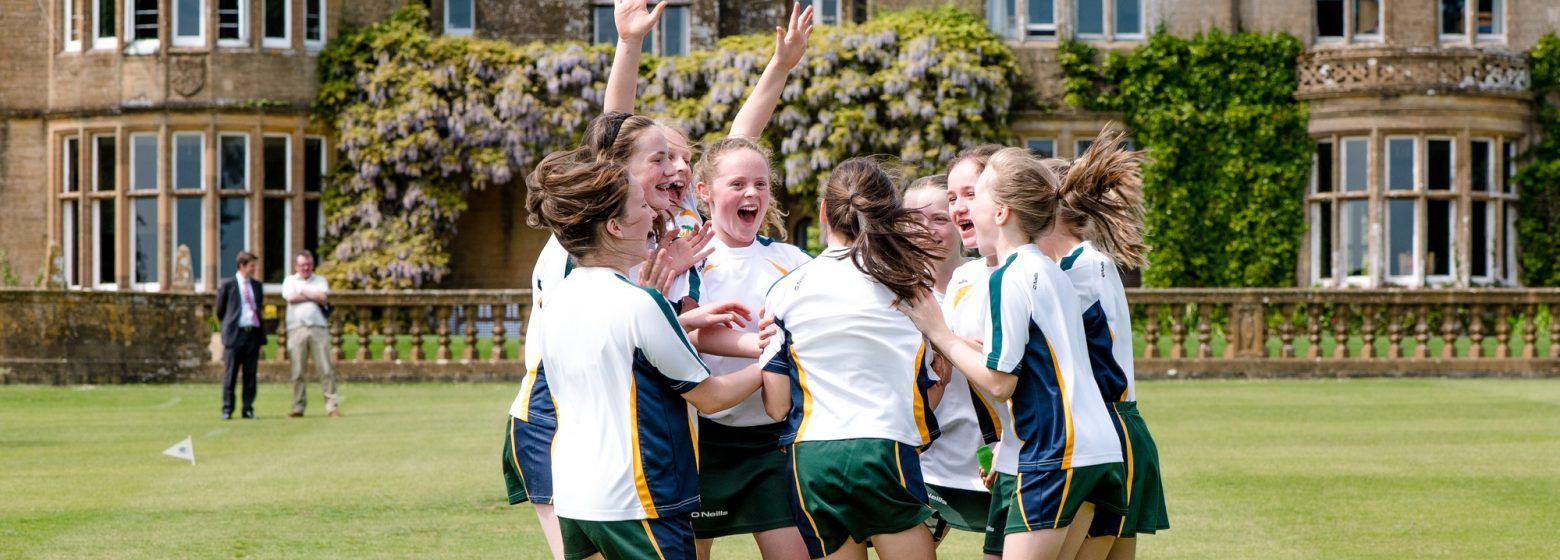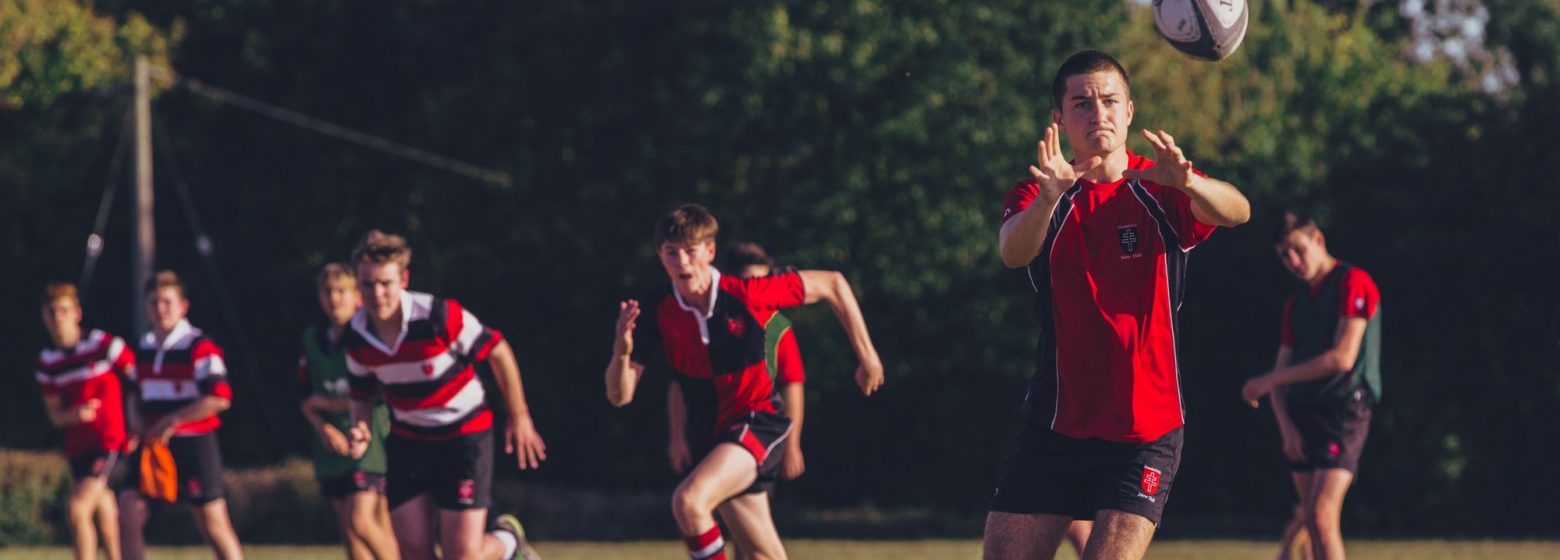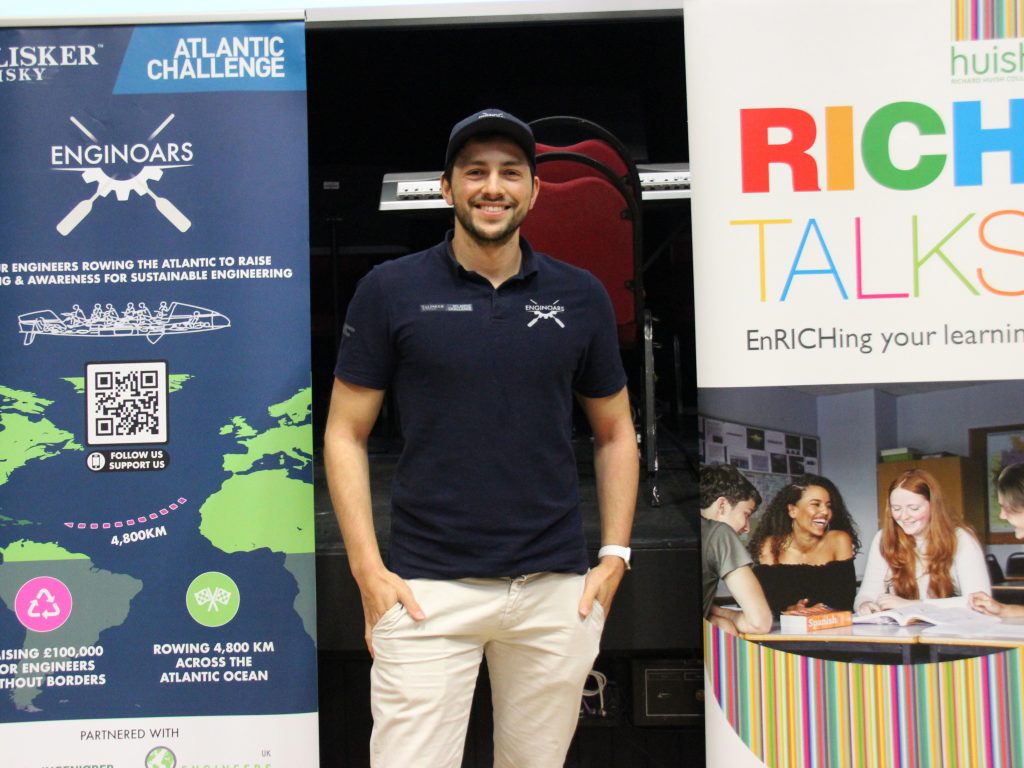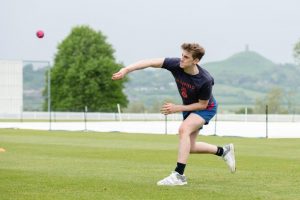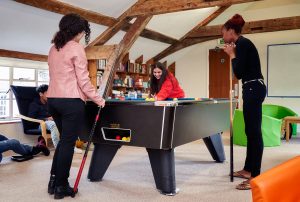Former Richard Huish College student, Rufus Mitchell-Heggs returned to the College over a decade on to perform a RICHTalk for current students about his plans to race across the Atlantic Ocean unaided with his 4-man rowing team, the ‘Enginoars’.
The Talisker Whiskey Atlantic Challenge is widely known as the world’s toughest row; starting in the Canary Islands and ending in Antigua & Barbuda. The Enginoars will be competing against more than 35 teams, rowing two hours on, two hours off for 24 hours a day for up to 60 days. They will face waves up to 6m high, complete approximately 1.5 million oar strokes and need to drink 10 litres of water a day each. The competition is judged on a variety of factors ranging from fitness to boat design.
The RICHtalk series at Huish gives students the chance to listen to experts discussing a variety of life experiences and topics that may be of interest to them. Topics have ranged from ‘Afghanistan’ to ‘Hellenistic Art’. Rufus’ lecture entitled “Why four engineers are competing in the world’s toughest row” was about both the physical and mental challenges of preparing for a 3,000 miles ocean race and the ever-increasing importance of encouraging companies and individuals to act in ways that are sustainable for our planet.
Rufus, now a Bio-Engineer, studied Maths, Chemistry and Biology A Levels at Huish from 2011-13, alongside French and Physics AS Levels and an EPQ project on Synthetic Technology. He is now working towards a PhD in Neurotechnology at Imperial College, London and the University of Edinburgh. His desire to compete in the Atlantic Challenge came after witnessing the atmosphere at the 2019 Atlantic race where he waved his brother off.
The other members of the Enginoars rowing team are all Norwegians; Simen, an Aerospace Engineer, Thor, a Marine-Engineer and Sindre, a Computer Engineer. The four friends all bring unique talents to the team, needed both during the endurance event but also in the run up to promote the team’s cause, acquire sponsorship and source the necessary materials needed for such a feat.
The team must raise £100,000 to fund the expedition and will be donating money to their charity partner, Engineers without Boarders (Norway and UK) to support sustainability projects.
Rufus shared “We partnered with Engineers without borders UK and Norway to support them on their monumental journey of driving change towards global sustainability and responsible engineering. As a charity they work tirelessly on connecting universities, engineering firms and NGOs to problems of global sustainability”.
Acting sustainably is central to the Enginoars journey. They have repurposed an existing boat from 2021 competitors, the Atlantic Flyers. Their specialised boat design includes a desalination water maker, to remove salt out of sea water for drinking and solar panels, for electricity used for navigation. They have also been selective in which brands and sponsors they have paired with, choosing companies that share their passion for sustainability. They hope to raise awareness of brands like Sungod sunglasses and Atlantis headwear by being pictured in their kit.
Due to their day jobs, the team are currently spread across the world so have been training independently but working collectively to build their brand, an important aspect of the challenge and their fund generation. They have been helping educate people through initiatives in schools like Huish’ RICHtalk, starred on Norwegian radio, and run social media campaigns. You can view their ‘rowing wild challenges’ on YouTube, Facebook and Instagram (@enginoars) to see them training on rowing machines in the strangest of places, ranging from mountains tops to by the Statue of Liberty in New York.
The team will eat, sleep and live on their rowing boat measuring 8.64m long for the duration of the challenge, carrying all their food, water and equipment with them. They will need to eat over 7000 calories per day. They will even be celebrating Christmas and the New Year upon the vessel. Rufus shared it helps that the team are such good friends as their friendship will help support their mental endurance throughout the challenge. The foursome will be moving to a shared apartment in Norway in February 2022 to strengthen their bond, which is where the real training begins.
They will receive their boat in March and complete a one-day trip that they will broadcast live. In April they will complete the Norway Fjord Tour, rowing multiple days against beautiful scenery ahead of a 120-hour practice row in June. The final step before the challenge will be to host a charity gala in September for sponsors, that includes a drinks reception, dinner and auction that will raise money and bring together individuals and companies passionate about working collaboratively to develop sustainable technologies to protect the planet.
Rufus hopes to return to Huish in 2023 to deliver a second RICHTalk following the completion of the race.
Categories: Richard Huish College School News
